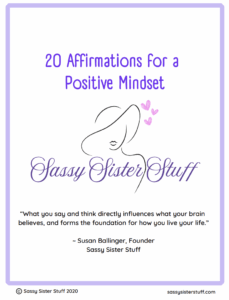10 Social Media Habits That Make You Look Insecure
The way you use social media can shape how others perceive you. Some common habits might unintentionally make you seem less confident than you really are.
Understanding which habits give off this impression can help you present yourself more clearly and with confidence. By becoming aware of these patterns, you’ll have more control over how others see you and feel better about your own online presence.
Posting vague or cryptic status updates
When you post vague or cryptic status updates, it can come across as a sign that you’re feeling unsure or wanting attention. These posts often leave people guessing about what you’re really thinking or feeling.
You might find yourself dropping hints or using ambiguous language instead of being clear. This can make others curious but also confused or frustrated.
Constantly seeking validation through likes

You might find yourself checking your social media for likes and comments more often than you realize. Each notification can feel like a small boost, but relying too much on this approval can make your self-worth depend on others.
When you constantly post just to get likes, it signals insecurity. It’s like asking for permission to feel good about yourself.
Over-sharing personal struggles frequently
When you share personal struggles too often on social media, it can come across as seeking constant validation. You might hope that others’ reactions will make you feel better, but it can also signal insecurity about handling challenges privately.
Posting about heartbreaks, frustrations, or vulnerabilities repeatedly may make others unsure how to support you. It’s okay to open up sometimes, but doing it too much can blur boundaries and leave you feeling more exposed than empowered.
Comparing yourself openly to others’ achievements
When you openly compare your achievements to others on social media, it can make you seem insecure. It often signals that you doubt your own progress and are looking for validation.
Sharing comparisons can also lead to increased anxiety and lower self-esteem. Instead of focusing on what makes you unique, you highlight gaps between you and others.
Regularly deleting posts due to self-doubt
When you keep deleting posts, it often signals that you’re second-guessing how others will perceive you. You might post to feel better but then delete because you worry about judgment or how you look.
This back-and-forth can leave you feeling more alone, not less. It’s a sign your confidence may be shaky, and that you’re relying too much on social media validation.
Excessive tagging of friends in posts
When you tag friends in every post, it can feel like you’re seeking constant attention or approval. This habit might make others wonder if you’re unsure about your own social standing.
Tagging too often can also clutter your friends’ timelines and notifications. Many don’t appreciate being tagged in content they aren’t closely connected to.
Excessive use of filters to alter appearance

When you constantly use filters to change how you look, it can send a message that you’re not comfortable with your natural self. Filters that reshape your face or smooth your skin might make you feel better in the moment.
However, relying too much on them can hurt your confidence over time. You might start comparing the filtered version of yourself to the real you, which can create self-doubt.
Using filters all the time can also affect how others see you. People may wonder why you feel the need to hide behind digital changes, which can make you appear insecure without you meaning to.
Frequently apologizing in captions
If you find yourself saying sorry a lot in your social media captions, it can give off a vibe of insecurity. Constant apologies may make your audience think you lack confidence in what you share.
While it’s good to take responsibility when needed, overdoing it can chip away at your own self-worth. Try to balance honesty with confidence by focusing on your message instead of dwelling on what might go wrong.
Posting contradictory opinions to please others
When you change your opinions just to fit in or gain approval, it can come across as uncertain. People might notice if your views shift too much depending on who you’re talking to.
This habit often signals insecurity because it shows you might not fully trust your own thoughts. Staying true to your beliefs helps others see you as confident and genuine.
It’s okay to adjust your tone or wording, but completely switching sides can make your social media presence feel inconsistent. Being honest with yourself online encourages stronger connections.
Avoiding posting original content

If you rarely share your own ideas or experiences, your profile can seem less genuine.
People connect with authenticity. Reposting or copying others too often might make you appear unsure of your voice.
Try sharing your thoughts or creative work. Small personal touches build trust and interest.








